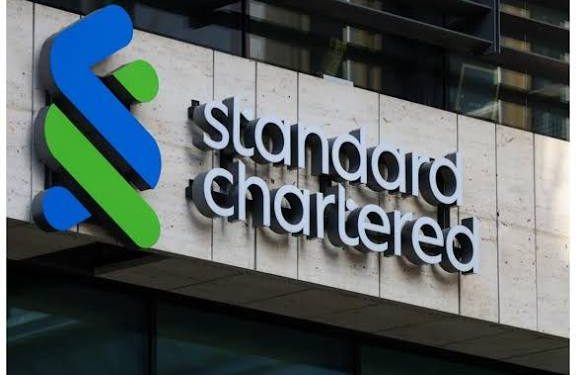Standard Chartered Bank Nigeria Limited has announced that it will begin closing customer accounts with balances below seven million five hundred thousand naira starting in February 2026. The move marks a significant restructuring of the bank’s retail operations and signals a decisive shift toward a new business model focused on higher-value clients and digital banking services.
A Strategic Shift in Focus
According to notices circulated to customers and several local media reports, the policy will take effect on February 28, 2026. The bank will discontinue its “Personal Banking” segment and introduce a new “Emerging Affluent Segment.” Under this structure, customers must maintain Assets Under Management (AUM) of at least ₦7.5 million to remain eligible for retail banking services.
The bank has also revealed plans to streamline its branch network beginning January 15, 2026. Several outlets will be closed, leaving only a few branches operating in Lagos, Abuja, and Port Harcourt. This development aligns with Standard Chartered’s global plan to reduce physical operations in smaller markets and concentrate on digital service delivery and wealth management.
Customer Impact and Public Reaction
The announcement has sparked widespread debate among Nigerian customers, many of whom view the new threshold as excessively high and exclusionary. Critics say the policy effectively sidelines middle-class and low-income customers who depend on Standard Chartered for personal and salary banking.
Industry observers note that the bank’s decision could lead to a “mass exit” of retail customers toward local banks and digital fintech platforms that cater to smaller balances and day-to-day transactions. Some commentators have described the policy as a reflection of growing inequality in Nigeria’s banking landscape, while others argue it is a pragmatic business decision intended to preserve efficiency in a challenging operating environment.
Customers affected by the change are expected to receive official notifications outlining their options before the February 2026 deadline. They may either increase their balances to meet the ₦7.5 million minimum or transfer their funds to another institution.
Bank’s Rationale and Business Outlook
Sources close to the bank explain that the move stems from a combination of cost pressures, regulatory compliance requirements, and digital transformation goals. Maintaining thousands of low-balance accounts increases operational expenses, particularly with ongoing inflation, currency depreciation, and tighter regulatory supervision in Nigeria’s financial sector.
Standard Chartered’s strategy reflects a broader industry trend in which international banks in emerging markets are streamlining operations to focus on profitability and high-margin customer segments. By introducing the new AUM threshold, the bank aims to consolidate its Nigerian business around private banking, wealth management, and high-income digital clients.
Expert Commentary
Financial analysts interpret the decision as part of a deliberate pivot by global banks operating in Nigeria. They note that Standard Chartered is not exiting the country but rather redefining its market presence. The closure of branches and smaller accounts could reduce overhead costs and free up capital for investment in digital channels and affluent-client services.
However, experts also caution that this approach may intensify competition in Nigeria’s retail banking space. Domestic institutions such as Access Bank, Zenith Bank, and GTBank, as well as fintech startups, may seize the opportunity to attract customers displaced by Standard Chartered’s new policy.
Regulatory and Market Context
Nigeria’s Central Bank regulations allow banks to segment customers based on business models, provided that changes are communicated clearly and customers are given fair notice. The law also requires that funds from closed accounts remain accessible to customers.
The current economic climate, marked by high inflation, rising operational costs, and volatile exchange rates, has put pressure on banks to optimise resources and focus on sustainable revenue sources. Analysts say Standard Chartered’s move is consistent with these realities.
What Customers Should Do
Customers are advised to take immediate steps to review their account status. Those whose balances fall below ₦7.5 million should:
Contact the bank’s customer service department to confirm their eligibility under the new segment.
Increase their balances before the deadline if they wish to retain their accounts.
Arrange to transfer their funds to other banks or digital platforms well ahead of the closure date.
Update standing orders, salary payments, and linked financial services to avoid disruptions.
























































